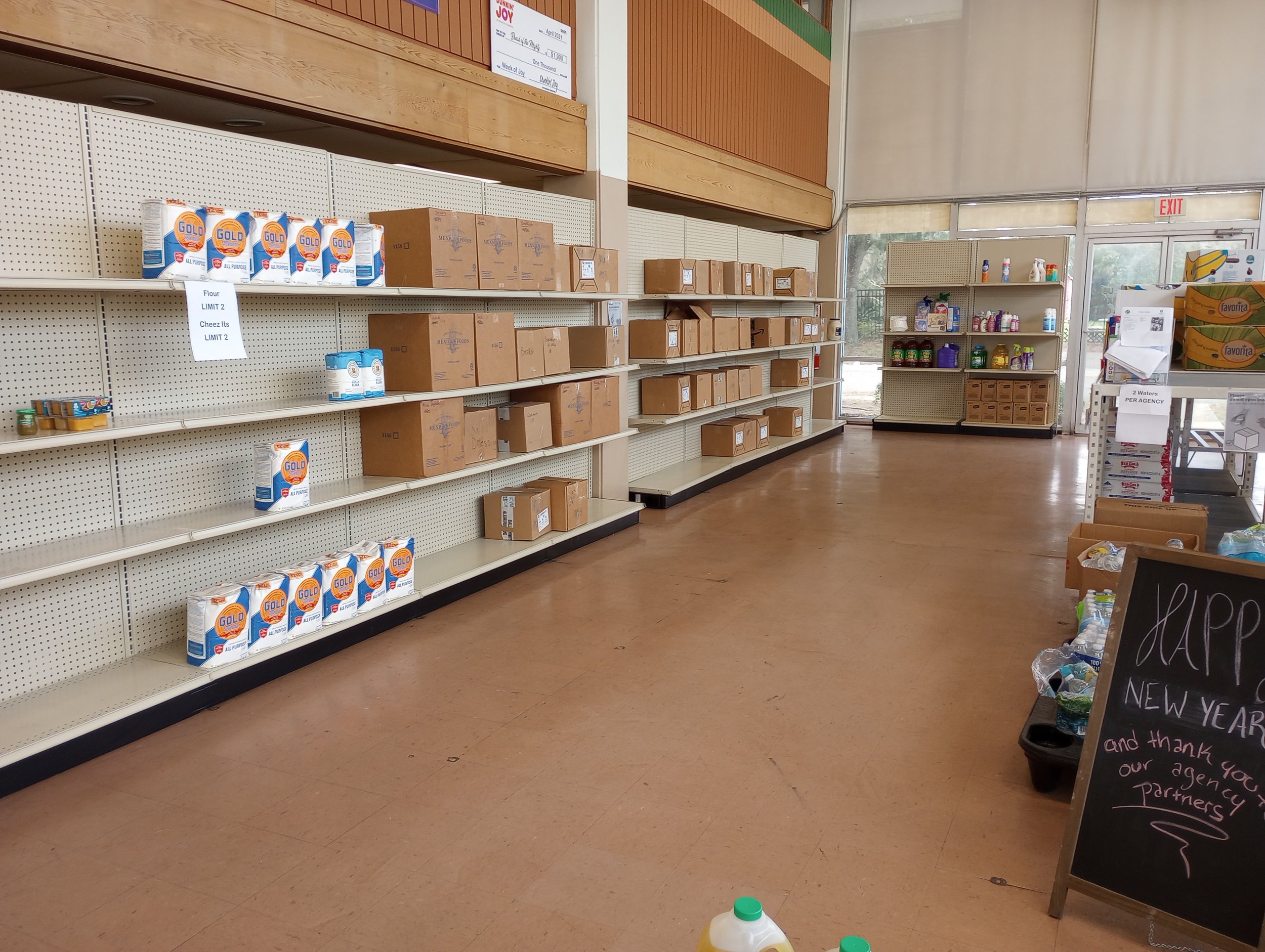We talk a lot about food. It stands to reason, people need it to survive and we put a lot of time, money and resources into growing and preparing it. Unfortunately, much of the food we produce goes to waste. In the U.S., up to 40% of all food produced goes uneaten, and about 95% of discarded food ends up in landfills.
There are ways to address food waste and The Environmental Protection Agency Food Recovery Hierarchy provides a simple way to visualize how we should handle excess food. It goes like this: source reduction, feeding people, feeding animals, industrial uses, composting and the very last resort - landfill/incineration.
Luckily, we have groups in our community that are working to make sure food is provided to those who need it and stays out of the landfill. For Zero Waste Week 2023, we want to highlight one of those organizations - Bread of the Mighty (BOTM). We had a chance to interview Monica Williams, Manager of Strategic Initiatives to learn more about Bread of the Mighty and its critical mission.
Zero Waste Gainesville: Tell us about Bread of the Mighty.
Bread of the Mighty: We are a non-profit that collects, sorts, stores and distributes donated food and basic essentials to 170+ non-profit agency partners such as food pantries, churches, homeless shelters and other organizations. These partners in turn distribute food in their communities to feed neighbors struggling with food insecurity. Our organization operates in a five county service area - Alachua, Dixie, Gilchrist, Lafayette and Levy; we are also a Partner Distribution Organization under Feeding America and part of the 12 food bank network of Feeding Florida.
ZWG: Where and how do you store food?
BOTM: Our 25,000 square foot warehouse has 2,600 square feet of cooler and freezer capacity. Thanks to our generous donors, we now have a fleet of 10 trucks and vans and 5 drivers. We’re on the road five days a week picking up donated food from generous retailers and wholesalers. We have a “Share Floor” where our food and coolers are located for partners to pick up and distribute back to the community.
ZWG: Who do you work with regularly on food donations?
BOTM: More than half, 54% of our food is donated from local stores. Aside from major retailers such as Publix and Walmart, locals may be surprised to hear our drivers pick up from Upper Crust bakery, Trader Joe’s, Earth Origins, and Door Dash warehouse. Farm produce is 13% of our food source. Feeding Florida secures the food from farmers and disperses to the 12 food banks in the network.
ZWG: What do you do with non-edible food?
BOTM: We contract with two hog farmers to pick up bakery and produce that is not edible for human consumption. We have been doing this for several years and are looking for more hog farmers that can pick up from the food bank.
ZWG: How do you work with partner agencies and what additional services do you provide?
BOTM: Our partner agencies make an appointment and shop on the Share Floor a maximum of two times a week. Produce and bakery items are always free. Other food products have a fee of .18 cents per pound to cover the cost of obtaining and storing food.
We are increasing our nutritional efforts in a number of ways. At our mobile pantries and USDA senior program, we hand out nutritional flyers provided by UF SNAP ED. We include recipes in meal boxes that utilize fresh ingredients being distributed at events. Finally, we donate produce to Rawlings Elementary School for an after school cooking club.
BOTM provides family boxes that will feed a family of four for one week. The boxes are strategically packed with items to cook 7 dinners. Approximately 50 boxes are requested each week. A family box costs $12 each for the agencies. Businesses and organizations can make a monetary donation to cover the cost.
ZWG: What food needs are most prevalent in our community?
BOTM: Produce, bakery, and meat are the most prevalent food needs. We have shifted to these three categories as our major focus for distribution at mobile pantries. BOTM is focusing on fresh food because it is the most expensive and therefore not purchased by our food insecure neighbors.
ZWG: What are your pressing needs (e.g., equipment, certain types of food)?
BOTM: Our most pressing need is monetary donations. We can purchase more food at wholesale for a dollar than a potential donor shopping at a grocery store.
ZWG: How can people get involved and volunteer?
BOTM: Sign up to volunteer by visiting our website and clicking on the link in the volunteer tab. We welcome individuals and groups. Just sign up for a shift and training will follow.






